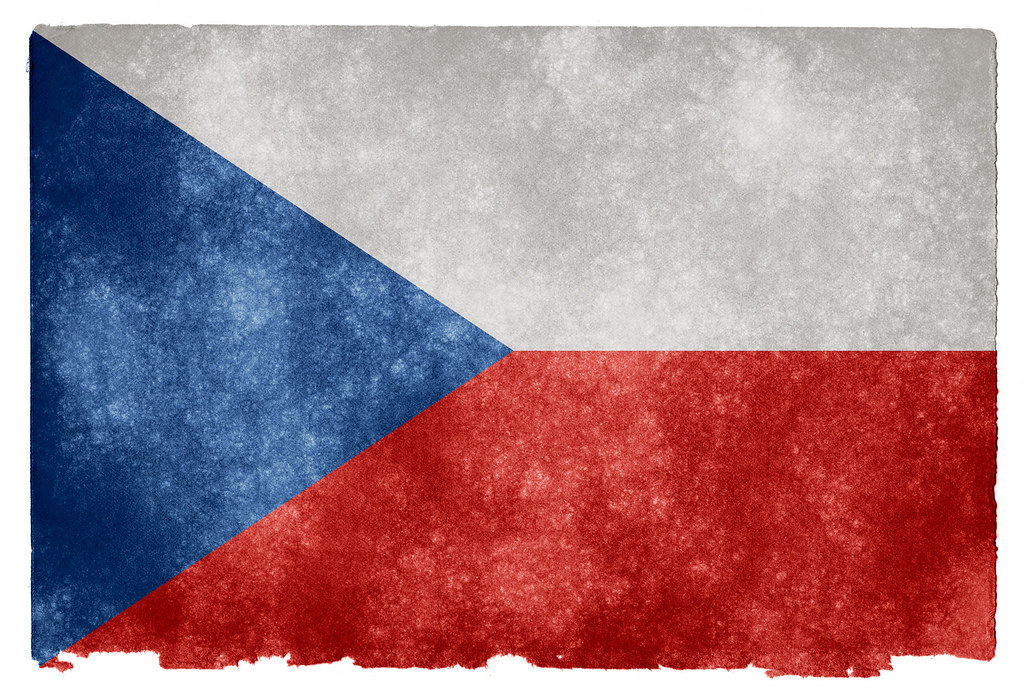
Zdena Salivarova, a Czech publisher and writer who became an instrumental figure in preserving her country’s literary heritage during decades of Soviet-backed Communist rule, died on August 25 in Toronto. She was 91. Her passing, announced by Sarka Vamberova, the consul general of the Czech Republic in Toronto, marks the end of a remarkable life dedicated to cultural defiance and intellectual freedom. In exile, Ms. Salivarova, alongside her husband, the acclaimed novelist Josef Skvorecky, established 68 Publishers, an émigré press that would become a beacon for silenced Czech voices.
Through her tireless efforts, Ms. Salivarova ensured that hundreds of books, outlawed by the Communist regime after the 1968 Soviet invasion that quashed the Prague Spring, found their way into print and into the hands of readers, often secretly. She managed an operation that, as The New York Times reported in 1983, offered “competition with Czechoslovakia’s official publishing establishment,” single-handedly nurturing a vibrant literary ecosystem from a one-bedroom apartment in Toronto. Her legacy is one of profound cultural resilience, an unwavering commitment to the written word, and an extraordinary personal sacrifice in the service of national memory.
While often overshadowed by her more famous husband, Ms. Salivarova’s discreet yet powerful influence was pivotal in shaping the literary landscape for luminaries such as Vaclav Havel, Milan Kundera, and her husband himself. Her vision and relentless dedication ensured that the works of banned writers not only survived but thrived, offering a vital lifeline to a suppressed national consciousness. The story of Zdena Salivarova is a testament to the power of one individual’s resolve to safeguard culture against overwhelming political forces.

1. **Zdena Salivarova’s Passing and Immediate Legacy**The announcement of Zdena Salivarova’s death on August 25 in Toronto, at the age of 91, reverberated through the Czech literary world and among those who cherish the preservation of intellectual freedom. Her passing was confirmed by Sarka Vamberova, the consul general of the Czech Republic in Toronto, highlighting the significance of her contributions even in her final years. Ms. Salivarova’s extraordinary life journey, which saw her transform from a promising artist in Prague to a formidable publisher in exile, left an indelible mark on Czech literature.
Her most enduring legacy is undoubtedly 68 Publishers, the émigré press she co-founded with her husband, Josef Skvorecky, in 1971. This venture became a crucial conduit for Czech literature that had been outlawed by the Soviet-backed Communist regime after the suppression of the Prague Spring in 1968. Through 68 Publishers, Ms. Salivarova provided a platform for more than 200 banned writers, ensuring their voices were not extinguished by state censorship. Her efforts were not merely about printing books; they were about sustaining a cultural identity.
Derek Sayer, an expert on Czech literature and an emeritus professor at the University of Alberta, aptly described 68 Publishers as “far and away the most important of the émigré publishing houses.” He further emphasized its critical role by stating, “It basically kept Czech literature alive.” This assessment underscores the monumental impact Ms. Salivarova had on her nation’s intellectual and artistic continuity, a legacy that continues to resonate years after the Velvet Revolution rendered the publishing house’s direct mission “superfluous.”
2. **Early Life and Family Background in Prague**Zdena Josefa Salivarova was born on October 21, 1933, in Prague, into a family deeply connected to the world of books. Her father, Jaroslav Salivar, was a bookseller and publisher, an occupation that would shape his daughter’s destiny in profound ways, though not without immense personal hardship. Growing up in the 1930s, Ms. Salivarova witnessed her family grappling with economic adversity; her father “lost a lot of money and we were very poor,” she recalled in 1994. His book-selling business nearly failed, only to experience a brief, grim resurgence under Nazi rule because, as she noted, “there was nothing to buy except books.”
The post-World War II era brought even greater tribulations under the Communist regime. Ms. Salivarova’s father became a victim of the state’s repressive policies; his business was confiscated—a fate she stated made him the first Czech publisher to be so treated—and he was subsequently arrested and sentenced to two years in jail. The family’s suffering extended further when her brother, Lumir, was also arrested on “trumped-up charges,” a common practice of the time, and condemned to 10 years in the Czech uranium mines. These early experiences undoubtedly instilled in Ms. Salivarova a deep understanding of state oppression and the fragility of intellectual freedom, foreshadowing her later commitment to literary resistance.
Despite the political turmoil and personal hardship, Ms. Salivarova completed her education, graduating from the Eliska Krasnohorska Girls’ Real Gymnasium in Prague in 1952. Her family’s ordeal prevented her from pursuing her initial artistic aspirations fully; she studied violin with Jindrich Feld but was denied entry to the city’s conservatory. This rejection was explicitly due to her father and brother “already political prisoners,” a stark example of how the regime’s reach extended into every aspect of citizens’ lives. This period of her youth forged a resilient spirit and an awareness of injustice that would fuel her later endeavors.

3. **A Promising Artistic Career: Singer and Actress**Before she became a publisher, Zdena Salivarova cultivated a multifaceted artistic career, first as a singer and later as an actress. After being denied admission to the Prague conservatory, she joined the Czechoslovak State Song and Dance Ensemble, traveling the world and performing. While this provided an opportunity to experience cultures beyond the Iron Curtain, Ms. Salivarova soon found the experience creatively stifling. “I left because I was really fed up with singing the same folk songs over and over,” she confided to Sam Solecki in a 1994 interview, expressing a yearning for more improvisational forms of expression: “I was really longing to sing jazz.”
Her artistic pursuits continued into the early 1960s, where she found a new outlet as an actress and singer in a cabaret theater. This period allowed her to explore different facets of performance, showcasing her versatility and talent. In 1965, by which time she was married to Josef Skvorecky, who was beginning to gain recognition as a writer, Ms. Salivarova enrolled at the Academy of Performing Arts in Prague. There, she pursued script writing studies, learning under the tutelage of Milan Kundera, whom she recalled as “arrogant.”
Her experiences at the Academy, particularly Kundera’s portrayal of women characters, significantly influenced her own creative output. She stated that his “misogynistic treatment of his women characters ‘provoked’ her” into writing her collection of novellas, “Panska Jizda” (“Gentleman’s Ride”), published in 1968. Alongside her writing and studies, she also acted in several major films directed by leading figures of the Czech New Wave, further cementing her position as a notable artist in the vibrant cultural scene of the time. This period of artistic flourishing culminated in the brief but exhilarating era of the Prague Spring, which she fondly remembered as “a golden age, the best time of my life.”

4. **The Tumultuous Prague Spring and Exile**The optimism and creative ferment of the Prague Spring, which Zdena Salivarova cherished as “the best time of my life,” came to an abrupt and brutal end in August 1968. This period of liberalization in Czechoslovakia was violently quashed by the Soviet Union, marking a profound turning point in the lives of Ms. Salivarova and her husband, Josef Skvorecky, along with countless other Czech intellectuals and artists. At the time of the invasion, the couple was vacationing in Paris, a fortunate circumstance that spared them the immediate brutality but confronted them with an agonizing decision about their future.
Initially, they decided to return to Czechoslovakia in October 1968, driven by Ms. Salivarova’s desire to continue her studies at the Academy of Performing Arts. However, the grim reality of the post-invasion regime quickly set in. Mr. Skvorecky recounted in a 1985 interview that “after three months she realized how terrible things were, so we left.” The burgeoning repression and the rollback of the freedoms they had enjoyed made life under the Soviet-backed government untenable. This realization prompted their decisive departure from their homeland on January 31, 1969, marking the beginning of their life in exile.
Their initial destination was the United States, where Mr. Skvorecky had secured a teaching position at the University of California, Berkeley. For Ms. Salivarova, however, this new chapter brought its own set of challenges. She found herself in an unfamiliar country, grappling with a language barrier and a sense of isolation. “I didn’t speak any English and didn’t know anyone,” she told Mr. Solecki, describing her days spent working on her novel as a means to cope with her new circumstances. This period of displacement and initial detachment would soon catalyze her most significant contribution to Czech culture, as the couple later moved to Canada, settling in Toronto in 1969, carrying with them the manuscript of her novel, a symbol of their enduring cultural connection to their homeland.

5. **The Genesis of 68 Publishers: A Solution to Exile’s Challenges**The founding of 68 Publishers in 1971 emerged not from a long-term publishing strategy, but as a pragmatic response to Zdena Salivarova’s personal sense of displacement and her husband’s professional predicament in their new Canadian home. Josef Skvorecky had found a teaching position at the University of Toronto and was proficient in English, but Ms. Salivarova felt adrift, jobless, and monolingual. This period of restlessness was a significant concern for her husband.
As Michael Kaufman, a New York Times reporter, noted in 1983, Mr. Skvorecky, concerned by Ms. Salivarova’s moodiness, had offered her prize money he had won. His hope was that she might use it to enroll in a vocational course, perhaps to become a dental technician or a computer programmer, providing her with a new direction and purpose. However, Ms. Salivarova harbored different, more culturally resonant aspirations. Instead of a technical career, she envisioned a path that would directly address the literary void created by the Communist regime’s censorship in Czechoslovakia.
Ms. Salivarova herself viewed the venture as almost accidental, a solution to an immediate problem. “You know, when all this started I didn’t plan to be a publisher forever,” she told Mr. Solecki. “It was a solution to an immediate problem — what was I going to do in Canada, and how were we to publish Josef’s novel.” This pragmatic origin story belies the profound impact 68 Publishers would ultimately have, underscoring Ms. Salivarova’s resourcefulness and determination to carve out a meaningful existence in exile, one that simultaneously served a vital cultural purpose for her homeland.

6. **Ms. Salivarova as the Indispensable Driving Force**While 68 Publishers was a joint endeavor with her husband, Josef Skvorecky, Ms. Salivarova swiftly emerged as the undeniable “driving force” behind the operation. From its humble beginnings in their one-bedroom Toronto apartment, she took on a formidable array of responsibilities, transforming what could have been a pipe dream into a functional, prolific publishing house. Her pragmatic approach and tireless work ethic were critical to its survival and success. Mr. Skvorecky, who found the writers, was complemented by Ms. Salivarova, who “saw them into print.”
Paul Wilson, Mr. Skvorecky’s translator and a close associate of the couple, vividly recalled Ms. Salivarova’s extensive involvement. He stated that “at a certain point she did almost everything: typeset, design, she hired people to do the art for the cover.” Her dedication went beyond mere management; she was deeply involved in the meticulous, hands-on aspects of book production, laying out the books herself. Wilson further emphasized her relentless commitment: “She was there all the time. She came in early and stayed late,” painting a picture of a publisher utterly devoted to her craft and mission.
This self-renouncing task, though demanding, was undertaken without complaint, even as it meant setting aside her own promising literary career. Her responsibilities also extended to the logistical challenges of distribution, including taking the finished books to the post office and, remarkably, sometimes sending them back across the Iron Curtain free of charge. Derek Sayer, the Czech literature expert, underscored Ms. Salivarova’s central role, recalling Mr. Skvorecky’s insistence that “she was the one who kept it going.” This testimony from both close associates and her husband confirms her irreplaceable position at the heart of 68 Publishers, a testament to her profound impact.

7. **The Inaugural Publication: Josef Skvorecky’s “The Republic of Whores”**The journey of 68 Publishers began with a critical decision regarding its first publication: Josef Skvorecky’s unpublished early novel, “The Republic of Whores” (1954). This novel, deemed too provocative for official publication in Czechoslovakia, had garnered interest from another émigré group in the United States. However, Ms. Salivarova, with her keen understanding of the literary and political climate, foresaw potential issues with this arrangement. She recognized that the American émigré group “might find the language obscene, objectionable,” as she explained in a 1994 interview with Mr. Solecki.
Her intuition led her to advocate for self-publication. She firmly believed that to preserve the integrity and intended impact of the work, they needed to publish it themselves. Despite her husband’s initial apprehension—Josef was “very insecure, anxious, nervous,” fearing bankruptcy and the schadenfreude of those in Prague—Ms. Salivarova provided the reassurance and conviction needed to proceed. “So I told Josef that we should publish it ourselves,” she recalled, adding that she told him, “we must do it this way.”
This act of defiance and entrepreneurial courage paid off immediately. The publication of “The Republic of Whores” proved to be a success, providing the crucial financial foundation for their nascent enterprise. Ms. Salivarova proudly stated, “And in fact, we made enough money to publish another book, and another and another. And two decades later, we’re still here.” This initial success not only validated her judgment but also demonstrated the viability of their mission, laying the groundwork for the publication of 227 books over the next two decades, each one a testament to their unwavering commitment to Czech literature in exile.




